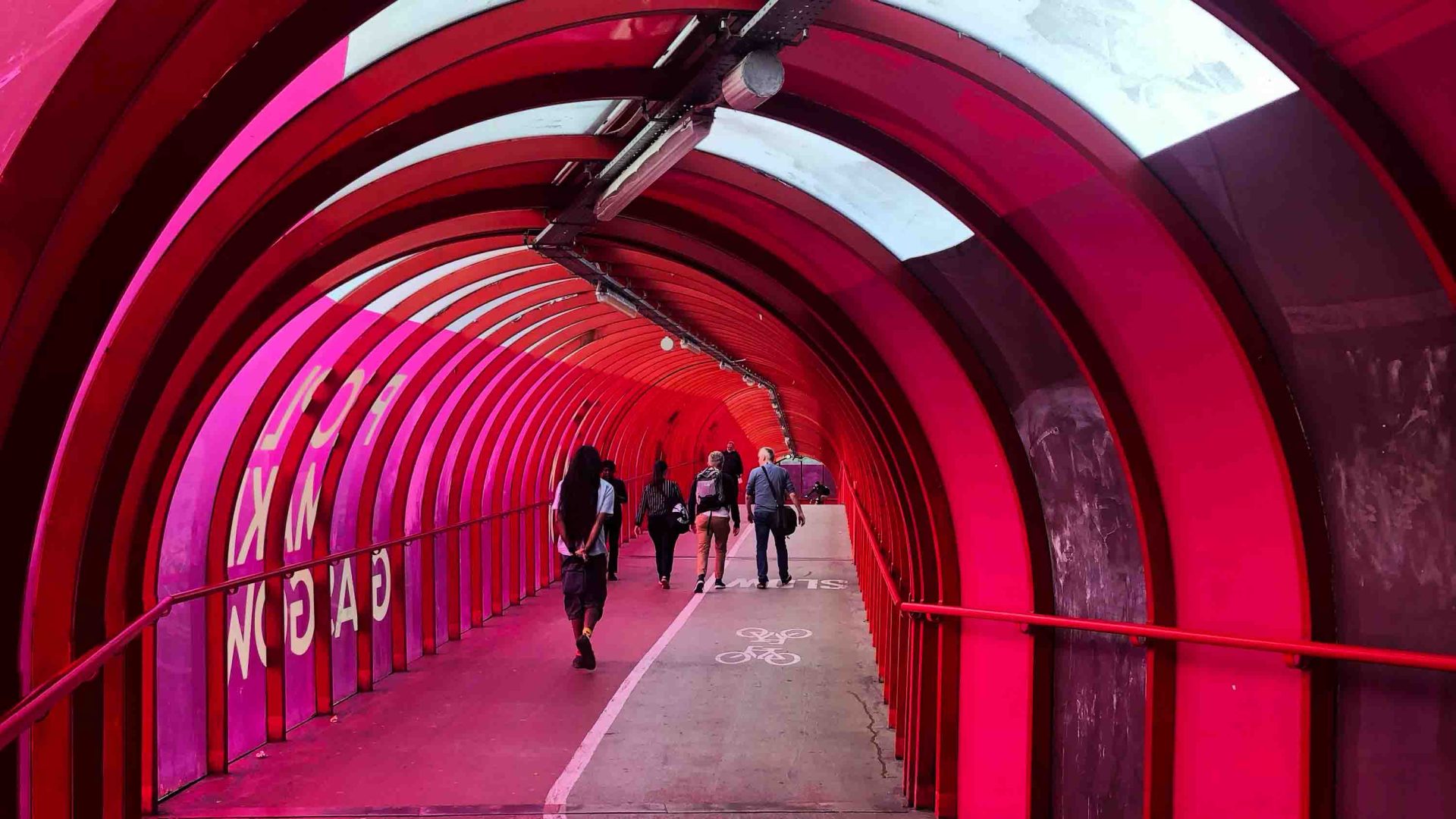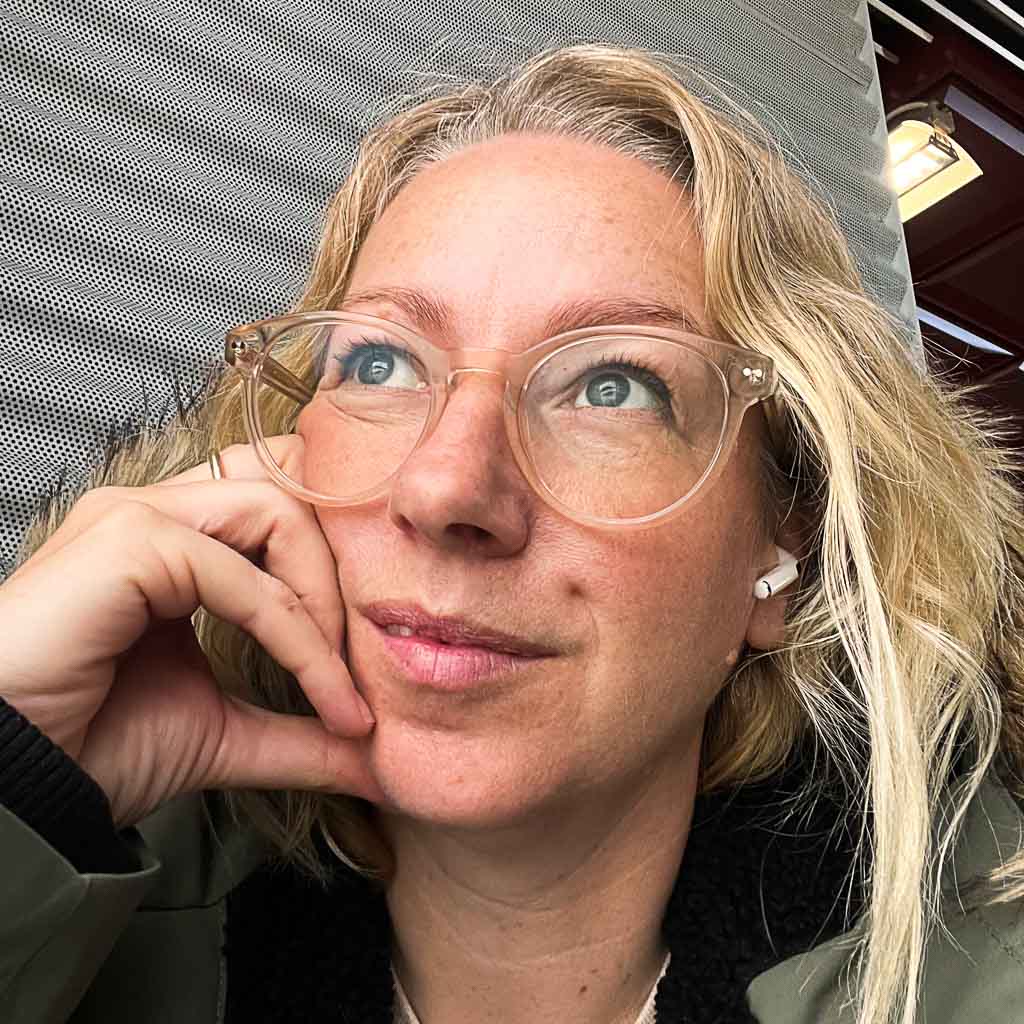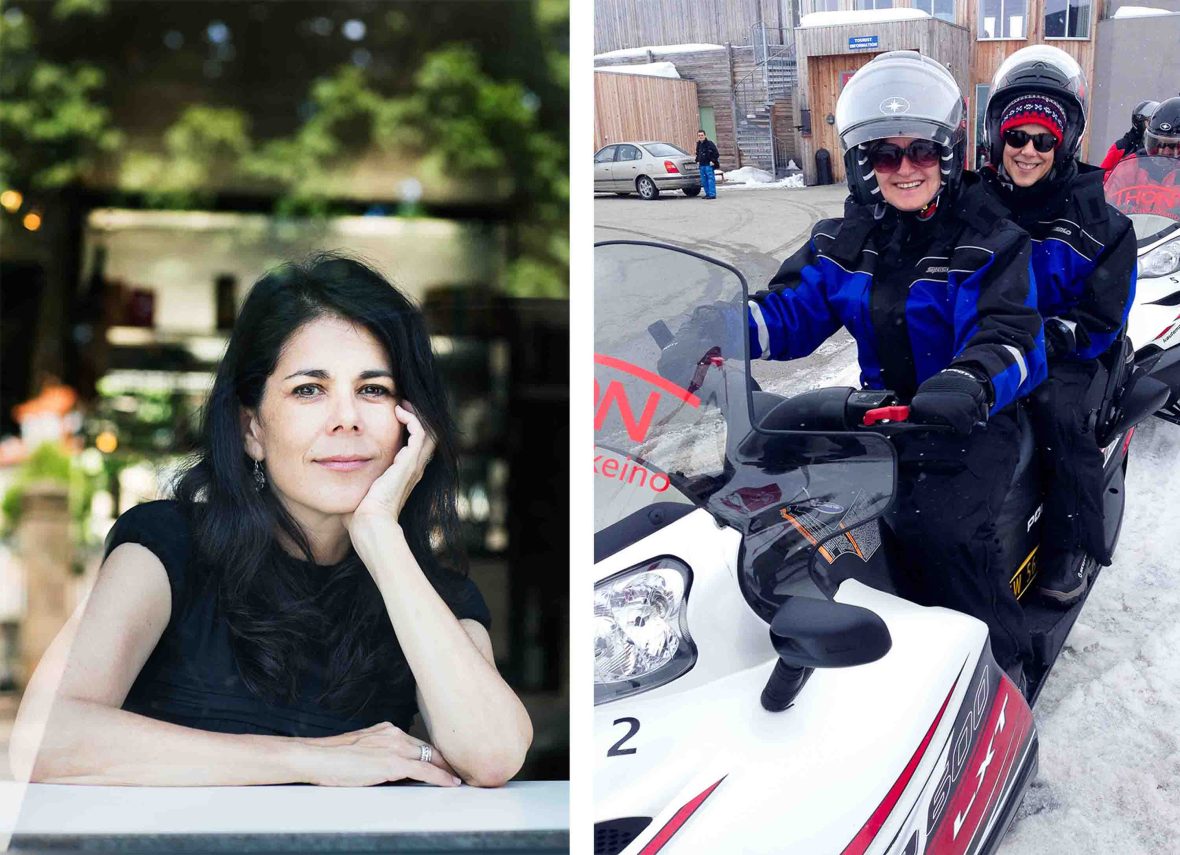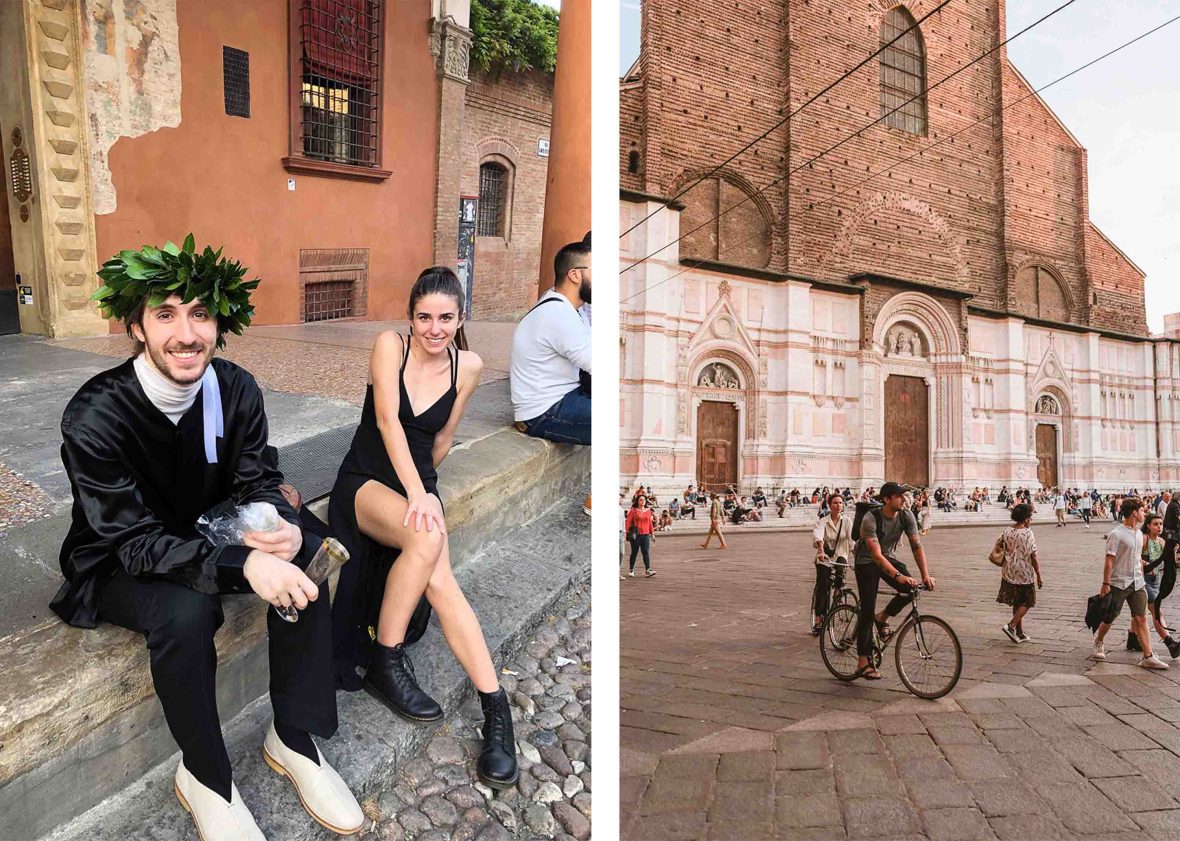
Traveling internet-free is how travel writer Lisa Abend sees the world. Laura Hall finds out what motivated her to travel this way, what she’s learnt and why she loves traveling this way.


Traveling internet-free is how travel writer Lisa Abend sees the world. Laura Hall finds out what motivated her to travel this way, what she’s learnt and why she loves traveling this way.
Lisa Abend is no stranger to travel. The award-winning journalist has long written about her adventures, among other topics, for publications including TIME Magazine, The New York Times and The Washington Post. But this year, she set out on a different kind of journey.
This time, she’s been trying to recapture a sense of serendipity and adventure that she felt has been missing in the travel world. And she’s doing it by rejecting the internet and instead, traveling by her wits and instincts, and recording her internet-free travels in her newsletter, The Unplugged Traveler.
But is it better or worse than having the world in your pocket—by way of a smartphone—as you travel?

“I’ve always done tons of research before going on a trip, running through all the lists and all the apps to put together where to stay and where to eat. I always considered it part of the job as a travel writer,” Lisa tells me.
“But I noticed that it was flattening the experience for me… I ended up looking for the same kind of bakeries and coffee shops and found myself surrounded by the same kind of people, in the same kinds of places. It had the effect of making everything feel more predictable.”
There’s no scrolling, which in itself is a revelation. It has been a challenge, being in a city alone without a phone to catch up or distract me when I’m bored or spacing out on the metro. I usually find myself reaching for it when I have the slightest flicker of boredom.”
- Lisa Abend, The Unplugged Traveler
Algorithms may be in part to blame for this situation. Using your personal public browsing data, they serve up better and better versions of the ideas you’ve already expressed an interest in online. It means that when you’re looking for something different, eye-catching and out-of-the-box, it’s that much harder to find.
Lisa’s project is all about realizing that the internet can’t serve up the unpredictability that makes travel so exciting—and finding a workaround. She booked her first trip this Easter and hasn’t stopped traveling since, visiting Hamburg, Bologna, Karlovy Vary, Zadar, Glasgow and the Cotswolds so far.
There are some rules, of course. Lisa books her tickets online, but after that, even though she has a smartphone with her, no internet research is allowed. Without the internet, she can’t book an Airbnb or use shared bikes or Uber. Google Maps is also out of bounds, and she tends not to take a map with her, favoring instead a jaunt to the local tourist office for an up-to-date paper version.
Once she’s arrived at the destination, she makes it a priority to find a hotel, often just by walking round, and then she’s off. She uses her smartphone for photos and phone calls too: as she puts it, “it’s really about being off the internet, not about avoiding my phone for its traditional purpose—and in an emergency, I’d definitely call for help!”
It’s been worth it so far, with experiences that have allowed her to make friends by striking up conversations instead of scrolling her phone, and travel with a different attitude by following what was in front of her, instead of Google Maps. As a result, while wandering the streets of Bologna, she once followed a parade of bay leaf-crowned graduates.
“There’s no scrolling, which in itself is a revelation,” she says. “It has been a challenge, being in a city alone without a phone to catch up or distract me when I’m bored or spacing out on the metro. I usually find myself reaching for it when I have the slightest flicker of boredom.”
But it has been rewarding too, and it’s all to do with the mindset. “The aim for me is to get a story out of it—something that is emotional where something happens,” says Lisa. “I look for and expect that I’m going to find stories and it hasn’t failed yet. If you approach travel with that attitude, you get what you come for.”

It’s the kind of thing that has seen her dive into the complications of selfie tourism in Hamburg—watching travelers pose in front of the ruins of St Nicholas church, she ended up writing about why we do these things, and how tourism and photography interrelate. It’s also seen her unwittingly follow in the footsteps of Oasis at King Tut’s while searching for a bar in Glasgow, discovering that this very bar, sharing the name of another she knows in New York, is where the band was first signed.
She’s visited the Croatian city of Zadar, somewhere she couldn’t pin on a map ahead of travel and so had no idea what to expect, making packing challenging and her experiences of the place a little baffling. “Did I think about cheating?” she writes in her newsletter. “Of course I thought about cheating.” And while in Bologna, after overhearing a conversation about sex tourism, she spent a day thinking about ‘appetites’, considering a wax anatomy model and being surrounded by food.
There are bumps in the road, too. Lisa has managed to avoid any serious situations so far, but admits that one problem causes more issues than others: Getting lost. Alone, without a map, lost late at night in Hamburg, she found herself walking in circles. The situation resolved when she realized she could do it the old-school way: A taxi.
With 7.21 billion smartphones in the world, meaning that eight out of every 10 people has one, and doom-scrolling blamed for increasing existential anxiety, just having a phone is an issue—before you consider what it does to numb the overall travel experience.
Another concern is FOMO—the fear of missing out. How can you know where’s good to go on any particular night of your trip if you can’t tap local networks, find out about the hottest restaurants, or see upcoming events and happenings?
With a no-phone approach, Lisa has had to embrace it, and in fact, even enjoy it. And not knowing what you’re missing out on has its perks: Without internet hype telling you there’s a banging restaurant next door, maybe you’ll enjoy the humble meal you’re having in a pub all the more. You just have to accept the trip as it is, she says, and not worry about how it compares to what else you could be doing. This more grounding approach has potential for higher satisfaction overall, where you’re more ‘present’ and not thinking about what is happening anywhere else.
The initiative has been well received on her newsletter, The Unplugged Traveler, and taps into a wider theme of people who are concerned about how we travel today.
With 7.21 billion smartphones in the world, meaning that eight out of every 10 people has one, and doom-scrolling blamed for increasing existential anxiety, just having a phone is an issue—before you consider what it does to numb the overall travel experience. The good news is that a rising number of people, Lisa included, genuinely do want to approach differently, be that unplugged or more mindfully.
“People want more from travel—they want to fly less and make it matter more. They want more adventure and more discovery,” says Lisa. “I would absolutely recommend traveling without a phone, at least once in a while. It’s the quickest way I know to imbue a trip with a sense of discovery. And when you lift your eyes from your phone, you never know who you might meet.”
**
You can follow Lisa’s travels on her Substack newsletter, The Unplugged Traveler

Laura Hall is an award-winning writer, journalist and author of titles including Time Out Copenhagen, Footprint Reykjavik and One Day, So Many Ways, a children’s book about how life is lived around the world. A former travel guide editor, she’s run communications for a travel start-up and led global content at a tourist board. She now writes about Scandinavia and the Nordics for BBC Travel, Kinfolk, Time Out, The Times, Lonely Planet and others.




Can't find what you're looking for? Try using these tags: